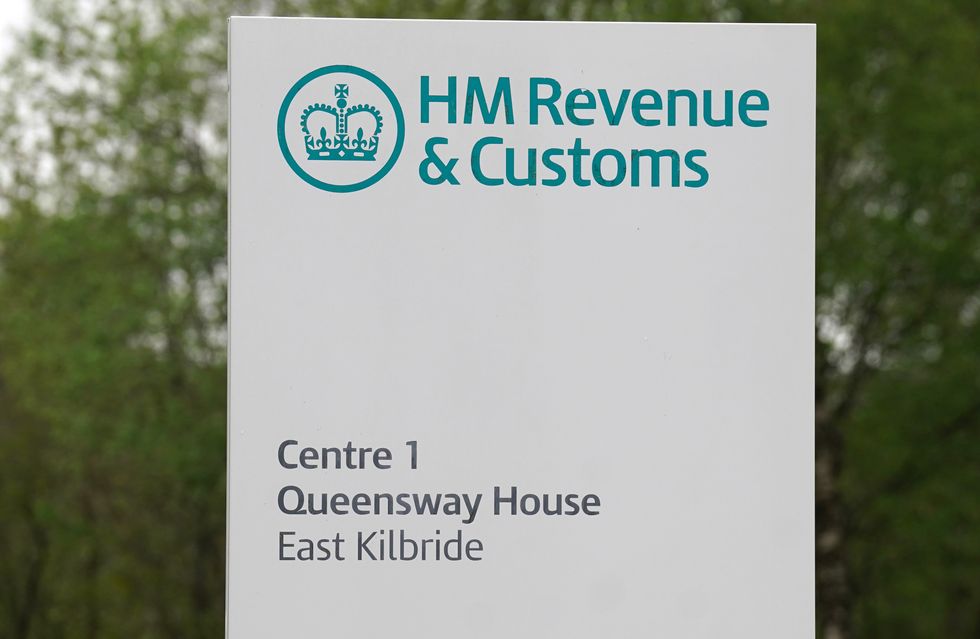Chancellor Jeremy Hunt announced changes to the non-dom tax status which affects how much certain people pay in tax
Don't Miss
Most Read
Trending on GB News
The Government has announced it will reform non-dom tax status during Chancellor Jeremy Hunt’s Spring Budget.
Chancellor Jeremy Hunt confirmed an overhaul of rules for people with non-domiciled status who do not have to pay taxes to the UK on money they make in another country.
In his Budget speech, Mr Hunt said: "The Government will abolish current tax system for non-doms, get rid of the outdated concept of domicile. We will replace the non dom regime with a modern simpler and fairer residency."
As it stands, those with non-dom status are able to earn money from abroad without having to pay tax this to HM Revenue and Customers (HMRC) for up to 15 years. This is now being reduced to four years, but after this period, those who continue to live in the UK will pay the same as everyone else.
Do you have a money story you’d like to share? Get in touch by emailing money@gbnews.uk.

Wealthier people have been known to benefit for the rules which encourage them to remain in the UK
GETTY
“Non-dom” refers to an individual’s tax status and not their nationality, citizenship or resident status, with the regime being considered beneficial for wealthy people. One of the more well-known cases of someone having non-dom status was Prime Minister Rishi Sunak's wife, Akshata Murty, who started paying UK tax on earnings following public scrutiny.
On non-doms, Mr Hunt said: “Recognising the contribution many of these individuals have made to our economy, we will put in place transitional arrangements for those benefitting from the current regime.
“That will include a two-year period in which individuals will be encouraged to bring wealth earned overseas to the UK where it can be spent and invested here – a measure that will attract onshore an additional £15bbillion of foreign income and generate more than £1billion of extra tax.
“Overall abolishing non-dom status will raise £2.7 billion a year by the end of the forecast period, money the party opposite (Labour) planned to use for spending increases, but today a Conservative government makes a different choice. We use that revenue to help cut taxes on working families.”
The Labour Party has pledged to “modernise” the non-dom regime ahead of the expected General Election this year. Mr Sunak’s Conservatives have previously ruled out changes to tax rules for people with non-domiciled status but reports leading up to Mr Hunt’s Budget suggested reform was on the table.
Labour shadow minister Bridget Phillipson described the potential abolishment of non-dom status as an “abject humiliation” for the Conservative Party.
Nimesh Shah, Blick Rothenberg CEO, said: "Abolishing the remittance basis for non-doms is expected to see large inflows of overseas monies into the UK for investment."
Earlier this week, the Institute of Fiscal Studies (IFS) warned that scrapping existing tax rules would risk “losing tax revenue” for the country as fewer wealthier individuals would be keen to reside in the UK.
Sam Dewes, Tax Partner at HW Fisher said: “The Chancellor has announced that the “non-dom” regime will be abolished. His plan is to allow overseas individuals to come to the UK and not pay tax on their overseas income and gains for 4 years. After that they will be taxed in the same way as other UK residents.
“This is a very significant change to a long-standing regime that was designed to entice overseas wealth to the UK. The key proposed change that will attract inward investment to the UK is that the existing rules restricting “non-doms” from bringing their untaxed overseas income and gains has been removed.
LATEST DEVELOPMENTS:

Labour has pledged to "modernise" the non-dom regime, while the Conservatives have avoided making changes
PA"However, it remains to be seen whether four years is enough of a grace period to encourage high net worth individuals to the UK, particularly for those who want to come to the UK for their children’s schooling.
"The other big unknown is how many of the existing “non-doms” will look to leave the UK as a result of these changes. As part of abolishing the non-dom regime, the Chancellor has proposed a consultation on moving to a residence based inheritance tax regime.
“We await further information about how these rules - which are some of the most complicated parts of the UK tax code - will be implemented in practice.”









